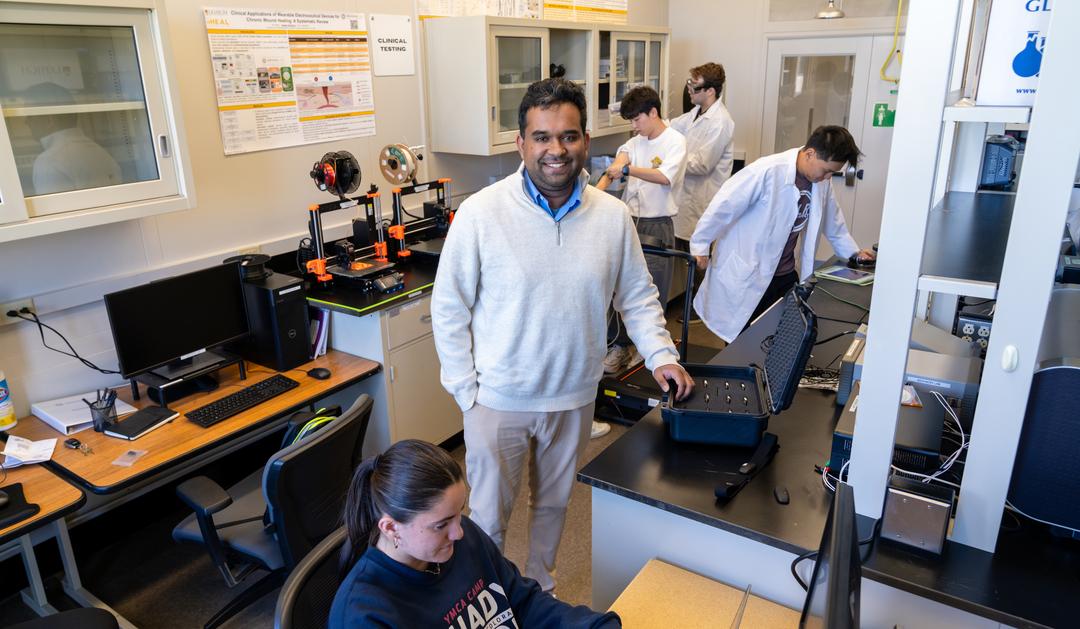Wearable tech can play a significant role in addressing women's health, particularly when it comes to understanding the physiological effects of their menstrual cycles. Assistant Professor Dhruv Seshadri and his team in the Department of Bioengineering have partnered with Ultrahuman, an India-based company that calls itself "the world's most comprehensive self-quantification platform," on two projects designed to address areas of unmet need relating to women's health.
The first project uses the company's wearable technology to understand how female athletes respond to training, and how factors such as the menstrual cycle may affect recovery and injury risk.
In the second project, Seshadri and his team are leading an initiative in South India that blends research, education, and service to address long-standing taboos around women's health—particularly menstrual hygiene and maternal care.





